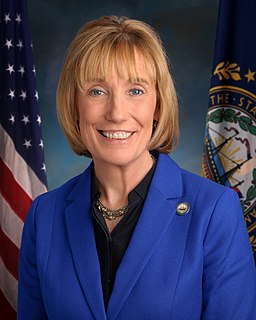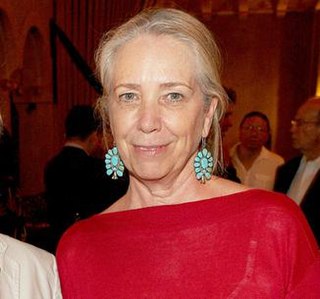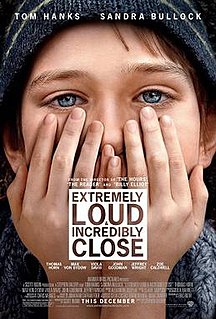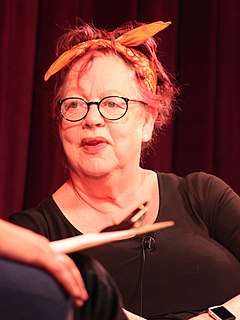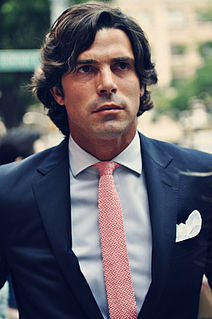A Quote by Reese Witherspoon
If more men would see a story of what it was like to be pregnant, and how it felt to be in a place where you had to make a decision about whether to keep a pregnancy, maybe they would feel differently about women's health care.
Related Quotes
We have to help decision makers realize that women's reproductive health rights are civil rights and that women need to be free to make the same decisions that men are free to make with regard to health care and whether and when to have a family. It's going to be increasingly important for women to speak up not only about being able to make our own decisions, but also about the importance of being trusted to make our own decisions.
I read a lot of studies about the fact that there is a bias in the way health care is doled out, down to the fact that most medical studies are done on men, not women, so most dosages are planned for men, not women, and on and on. And more than that, women's pain is gauged differently and their complaints are received differently. And the idea that there's a place where you can go where everything is geared toward you, as a woman, is great. But it's a shame that we need to find places that are "safe" when the world, the whole world, should be a safe place.
If children are given some real content, they can feel powerful with their own understanding of it. I think a movie like 'Indian in the Cupboard' will instruct them how to proceed as people. They can think about whether they would have done something the way a character did, how they would have felt about an event in the story.
I really don't see any men sitting in the corner office plotting to keep women out. All the men I know are actively trying to promote women, to get more women involved. These men have wives they care about; they have daughters they desperately care about. So I don't think it's fair to blame men - or I don't think it's accurate to blame men anymore.
Once upon a time, if you were going to get a loan from me, I would have had to look at your file, and I would have to make a decision about whether youre going to get a loan. Maybe we would meet and talk about it. There would be some level of human involvement and human interaction. Now, a lot of this is determined by an algorithm.
I would go into a place that was quiet and isolated and think about how my character would feel in the situation, considering who he was and what he had been through. I would think about that even up to 30 minutes. And when I felt the character was in my body and I had left, I could walk onto set or into rehearsal.
If I had a dream it would be to think, What would it be like for everybody to have the kind of health care I had? What would that feel like? How would that be, to live in that world? Because I'll tell you, to be really, really sick, and to not have money. That is terrifying. And in my opinion, a travesty.
The women of my mother's generation had, in the main, only one decision to make about their lives: who they would marry. From that, so much else followed: where they would live, in what sort of conditions, whether they would be happy or sad or, so often, a bit of both. There were roles and there were rules.
I know there are certain men that hate women or don't like women, and in order to make women feel small, they tend to isolate them when they bully them. And women are often humiliated by it and feel they can't do anything about it. So my advice to women would be: there's always support around for those sorts of things and if you feel you're isolated in any way, or being bullied, you must talk to someone about it.
When I studied computer science at Duke University in the first half of the 1980s, I had professors who treated women differently than men. I kind of got used to it. At Microsoft, I had to use my elbows and make sure I spoke up at the table, but it was an incredibly meritocratic place. Outside, in the industry, I would feel the sexism. I'd walk into a room and until I proved my worth, everyone would assume that the guy presenting with me had credibility and I didn't.
We really have to think about aging because women are living longer than men. More of the people who need care are women. A lot of them are living alone, with no one to care for them, or they're shunted into institutions. I would like to see a sensible aging policy more like what the Nordic countries have. They're cutting back those programs, but there you can still have in-home nursing care. You don't have to rely on your children. I personally don't want to be a burden on my daughter.
I was thinking about framing, and how so much of what we think about our lives and our personal histories revolves around how we frame it. The lens we see it through, or the way we tell our own stories. We mythologize ourselves. So I was thinking about Persephone's story, and how different it would be if you told it only from the perspective of Hades. Same story, but it would probably be unrecognizable. Demeter's would be about loss and devastation. Hades's would be about love.
A friend of mine had this idea a few years ago. We thought it would be a great way to promote the sport and to put polo in front of a lot more people in an unexpected place: the romance novel. There's a lot of people that care about those kinds of stories, especially women, and it would help people to know what the polo life is all about. It's not just what you see in the newspapers or on Pretty Woman. There's a lot more to it: the time spent in the barn, how much we love the horses, the relationship with the horses and with the family, etc.

